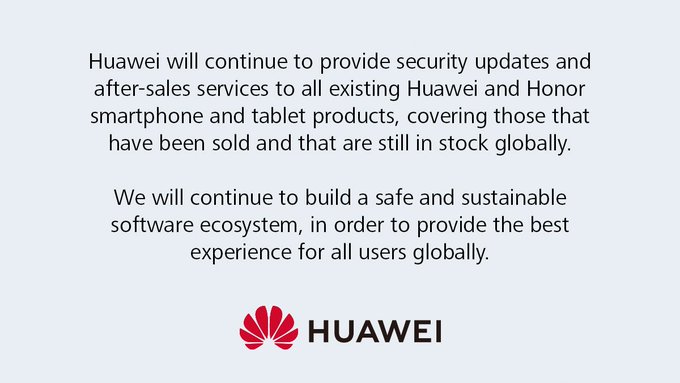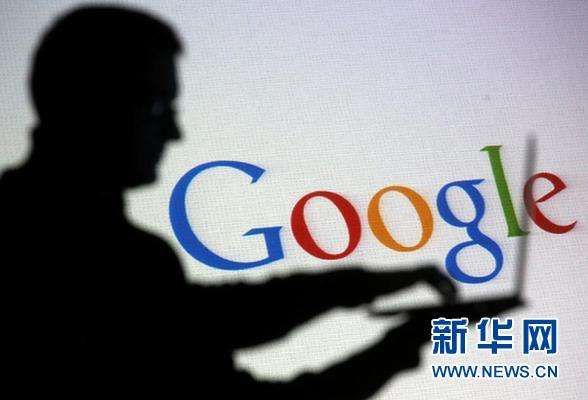Will Google's decision to suspend business with Huawei affect your device?
May 20 2019
Google's shock decision yesterday to suspend business operations with Huawei has sparked confusion and uncertainty among fans of the Chinese giant's devices, with many vowing to steer clear of the next generation of Huawei devices altogether.
Key points:
- Google says the Huawei ban will not impact "existing" users of smartphones
- Huawei says it will provide support and cover for all devices sold and in stock
- It is still unclear whether Huawei users will be able to enjoy the next Android OS upgrade
The suspension came just days after United States President Donald Trump signed an executive order declaring a national emergency and barring US companies from using telecommunications equipment made by firms posing a national security risk, essentially forcing a ban on certain firms from cooperating with China's Huawei.
Chinese analysts have described the moves as "barbaric", tech influencers were quick to post sentiments like "RIP Huawei outside of China" to their millions of followers, while a foreign affairs briefing in Beijing last night kicked off with a clear response that China's Government would support Huawei using "legal weapons" to defend itself.
Tech experts have since debated the lack of details around the announcement and acknowledged that while Huawei would struggle without US help, an enforced crackdown on Google software and hardware on currently-owned devices — extending to beloved apps like Gmail or even the Android OS— would be unfeasible.
But the confusion around the announcement has meant fans of Huawei's smartphones — attracted by its comparative affordability to Apple iPhones and cutting-edge features — may now think twice about keeping or buying a new Huawei device if the ban persists.
The debate has also prompted speculation as to how Australian suppliers and vendors might respond to such a situation as well as what Huawei's future without Google might look like — here's some of what we know so far:
Will Huawei devices lose accessibility to Google services?
 PHOTO: Google will stop providing Huawei with access, technical support and collaboration involving its proprietary services going forward. (AP: Andy Wong)
PHOTO: Google will stop providing Huawei with access, technical support and collaboration involving its proprietary services going forward. (AP: Andy Wong)
Despite initial fears that existing Huawei users could immediately lose access to downloads and updates to Google apps, Google and Android came out soon after the initial reports appearing to provide reassurance that "existing" devices would not be affected.
"We are complying with the [US Government] order and reviewing the implications," a Google spokesperson told the ABC in a statement.
At the same time, Android — the mobile operating system developed by Google — published a near identical statement that it was complying with US Government requirements while maintaining only that Google Play and security from Google Play Protect would continue to function on existing Huawei devices.
While the statements only referenced the functionality of Google Play — the Android's app store and security functions — in principle it means existing users should still be able to use, download and update Google's apps.
"There is always the risk that the [US State Department] … puts pressure on Google to say 'no, you actually have to block existing services', in which case there could be a concern," Alex Kidman, the tech and telco editor at comparison website Finder.com.au, told the ABC.
Yet while Google has maintained simply that Google Play would not be affected without commenting further, late last night Huawei published a statement noting its own significant role in Android's global success while, more strikingly, providing no reassurance that existing devices would not be affected, but rather, that its owners and vendors would be supported.
"Huawei will continue to provide security updates and after-sales services to all existing Huawei and Honor smartphone and tablet products, covering those that have been sold and that are still in stock globally," it said.
 PHOTO: Richard Yu, chief executive of Huawei's consumer business, launching a new phone in 2017. (Reuters: Paul Hanna)
PHOTO: Richard Yu, chief executive of Huawei's consumer business, launching a new phone in 2017. (Reuters: Paul Hanna)
At the same time, putting speculation about Google Play's functionality on existing devices aside, it still remains unclear what access to Google future devices would have, or even whether the annual Android OS upgrade to Android Q — the next generation of Google's mobile operating system — would be impacted by the ban.
According to Kidman, a ban on such an update could force Huawei to move on to the "public version" of the Android operating system — known as Android Open Source Project (AOSP) — where access to Google apps and services are limited.
"My interpretation is if the ban continues to that point, I can't see a way that Google will be allowed to provide that software to existing Huawei phones."
How have Huawei vendors in Australia responded?
The shock announcement from Google has also prompted questions around the world with regards to how businesses which sold or were linked to Huawei devices would deal with a potential consumer backlash due to a suspension.
Thus far, neither Google nor Huawei have said whether future models of Huawei smartphones would be affected, or whether such bans would apply to simply yet-to-be-designed models, or more troublingly, those already being promoted and rolled out worldwide but not yet officially released to the public, like the Huawei Mate X.
Huawei has been unavailable to provide direct comment on such fears, while Google has refused to provide further details beyond its initial statement to the ABC on existing devices.
Meanwhile, many Australian vendors and businesses reached out to for comment on the suspension and potential backlashes appeared to have not been advised ahead of the public Google announcement let alone how it would deal with them.
Vodafone Australia added that while there still appeared to be no immediate impact, the company was "working with Google and Huawei to understand the implications, if any, for Vodafone Australia".
Other stores and businesses such as JB Hi-Fi and Telstra referred the ABC to different corporate headquarters or did not respond for comment.
Kidman speculated that while recently released handsets such as the Huawei P30 would likely not be affected, devices that Huawei was gearing up to sell in the near future could very likely be impacted.
"The most immediate of which would seem to be or may be — only Huawei knows for sure — is the upcoming foldable device, the Huawei Mate X," Kidman said.
'We have our Plan B': How might Huawei navigate such a ban?
1 of 5
Huawei has for the past few years anticipated a disruption in its ties to Google services, and has been working on contingency plans — such as building its own operating system — in case it was ever suspended from using Android.
"We have prepared our own operating system; if it turns out we can no longer use these systems [Android], we will be ready and have our Plan B," Richard Yu, chief executive of Huawei's consumer business, recently said in an interview with German publication Die Welt.
Some of this technology was already being used in products sold in China, the company has said.
However, since many popular Google apps — including Gmail, YouTube and Chrome — are already banned in China, Google's decision is expected to mostly affect future and potential Huawei customers and businesses in countries outside of China, such as Australia.
In the same interview, Mr Yu discussed the new and upcoming Huawei Mate X as a response to how the company would navigate a difficult smartphone market, highlighting the company's hopes for the devices observers say could now be significantly affected by the Google suspension.
"It's not good for Huawei — this is a huge black eye for them," Kidman said.
"It would be a big fall as well, because they're currently … the number two brand worldwide for phone sales."
In its statement last night, Huawei opened by saying how as a partner of Android, it had "worked closely with their open-source platform to develop an ecosystem benefitting both users and the industry".
And after providing no assurance its current devices wouldn't be affected, it closed by pledging that Huawei would "continue to build a safe and sustainable ecosystem to provide the best experience for all users globally" — without specifying whether that future would involve Google.








No comments:
Post a Comment
Comments always welcome!